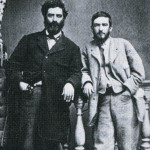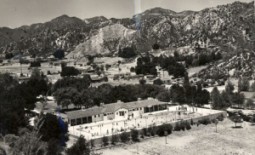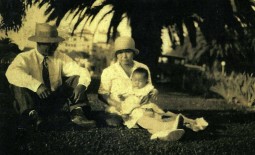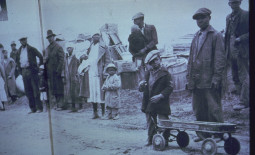People of the Campo Santo
In Los Angeles, 1876, three prominent city leaders were asked to write a history of the founding of Los Angeles, and its profound transformation from a Spanish-Mexican pueblo into an American city. Significantly, each of these pioneering American men – Col. J. J. Warner, Judge Benjamin Hayes, and Dr. J. P. Widney – came to Los Angeles during or shortly after the town’s Spanish-speaking “Californio” pre-1848 era. Each of these men became deeply entwined in Californio culture, family and business life, and fluently spoke or understood the Spanish language. J.J. Warner married into one of Alta California’s most prominent families – the Picos. His wife was the daughter of an English sea merchant who entrusted his young girl to the care of the Pico family. She was raised as a Pico, spoke Spanish and considered herself a Californio. Pio Pico, the last Californio governor of Alta California, grew up with her and considered her to be his sister. Warner became a Mexican citizen and changed his name to Juan José, and he and his wife had a number of children. Judge Hayes’ second wife was Spanish-speaking, and together they had a son. Doctor Widney’s large Los Angeles practice included, as he wrote, ” the old Spanish rancheros, besides a Spanish practice in the city itself and among the padres and sisterhood of the churches.” This amalgamation of cultures and ethnicities was a fascinating and important feature of early Los Angeles life, and though in the last decades of the 19th century Anglo Americans came to overwhelm Spanish-Mexicans in demographics and power, and seemed to almost erase their presence and “whitewash” over their culture, the entwinement of Anglo-Americans (and Euro-Americans) and Spanish-Mexicans in Los Angeles has never ceased to this day. In 1936, at age 95 years old, near the end of his life, Doctor Widney was asked to write the Preface to a new edition of the history that he, Warner and Hayes co-wrote so many decades before. Warner and Hayes had already passed. In his Preface, Widney reflected nostalgically on his many old friends, of both American and Hispanic background, and what he lovingly called the people of the Campo Santo (the California and Mexican coastal plains): “Upon the whole American Continent there is no more fruitful and unexploited field for literary work than this coast plain, which reaches from Los Angeles to Acapulco, and whether they will or no, their future is one and together, and I think neither type of race life will destroy the other, they will merge. The tropic plains will help in the merging. Out of it all, will come a type, not of the north, not of the south, but the American of the semi-tropics. My old time friends of the Campo Santo, at ninety-five years of age, I reach out my hand to your children’s children in an Americanism that shall know only one land and one people. Amigos mios, goodnight for the day that has been; goodmorning for the day that is to be.”




